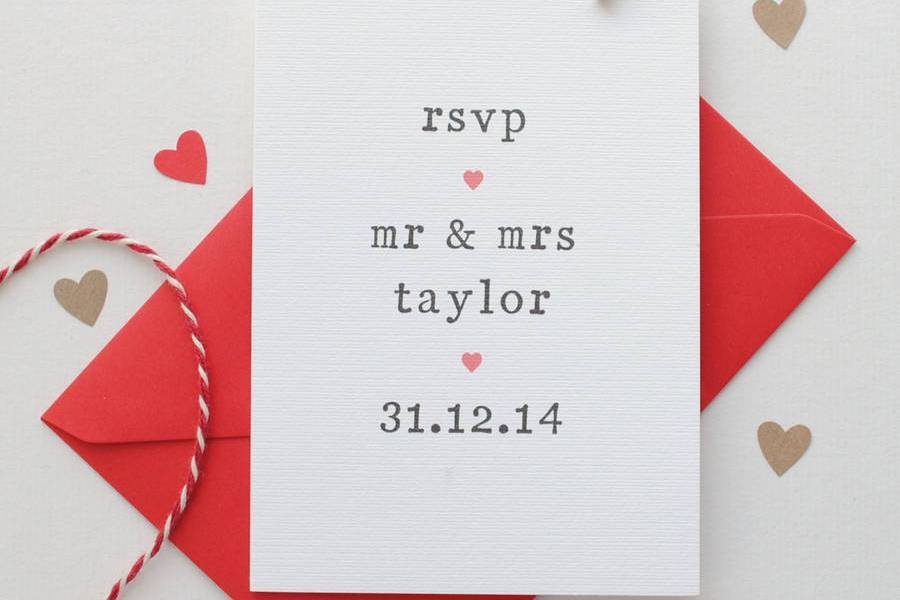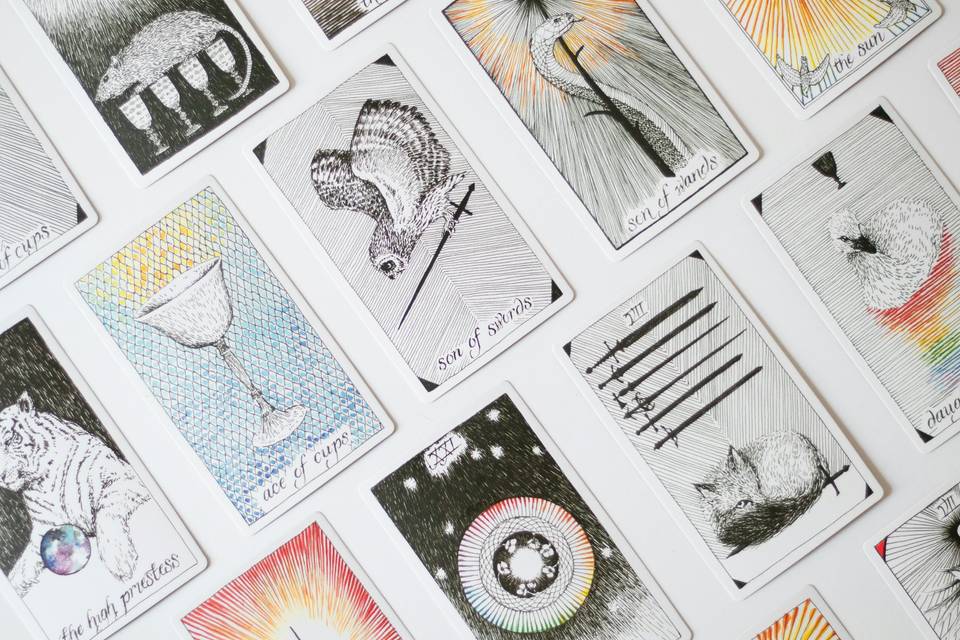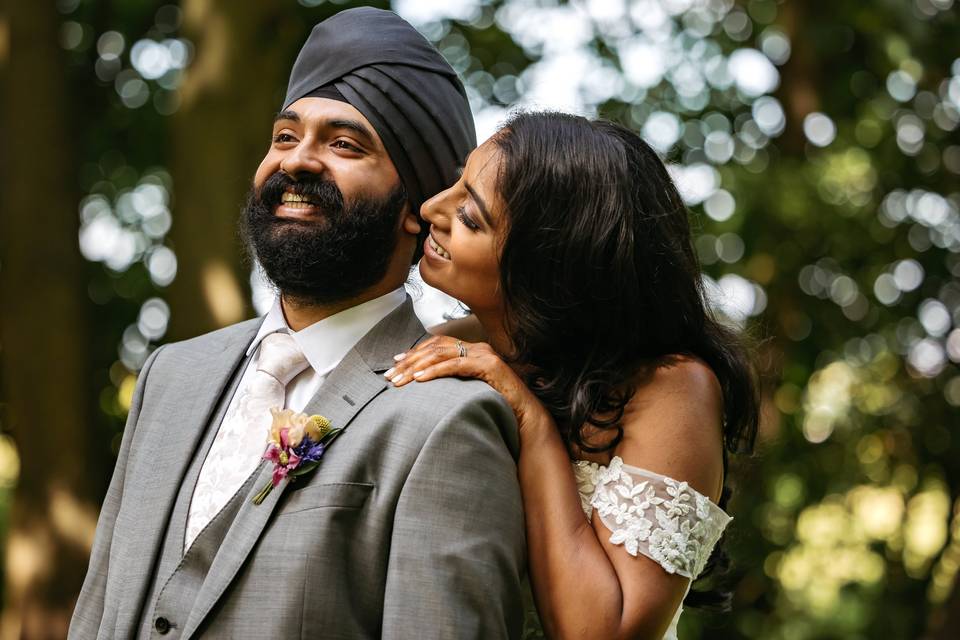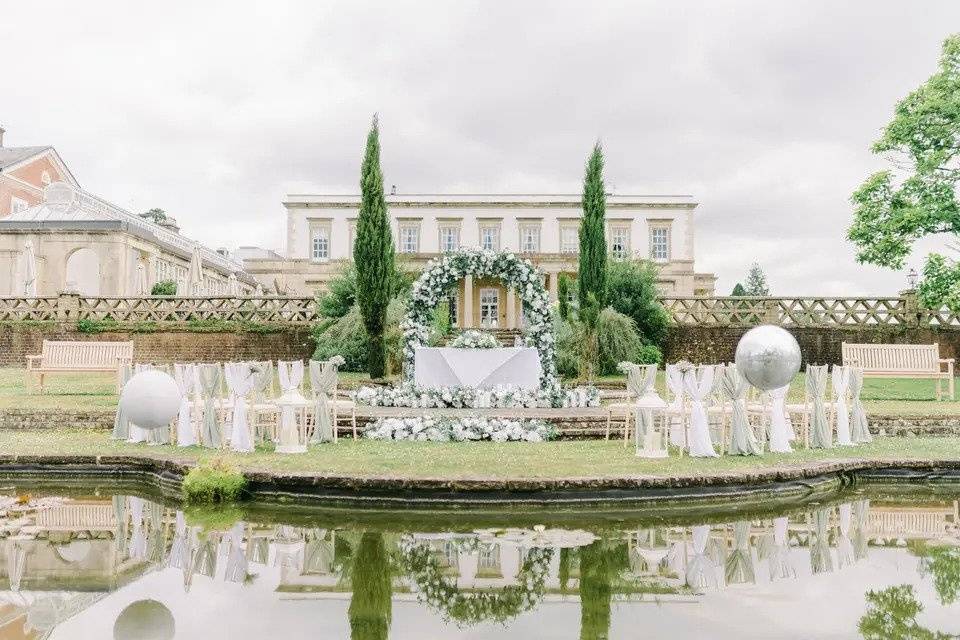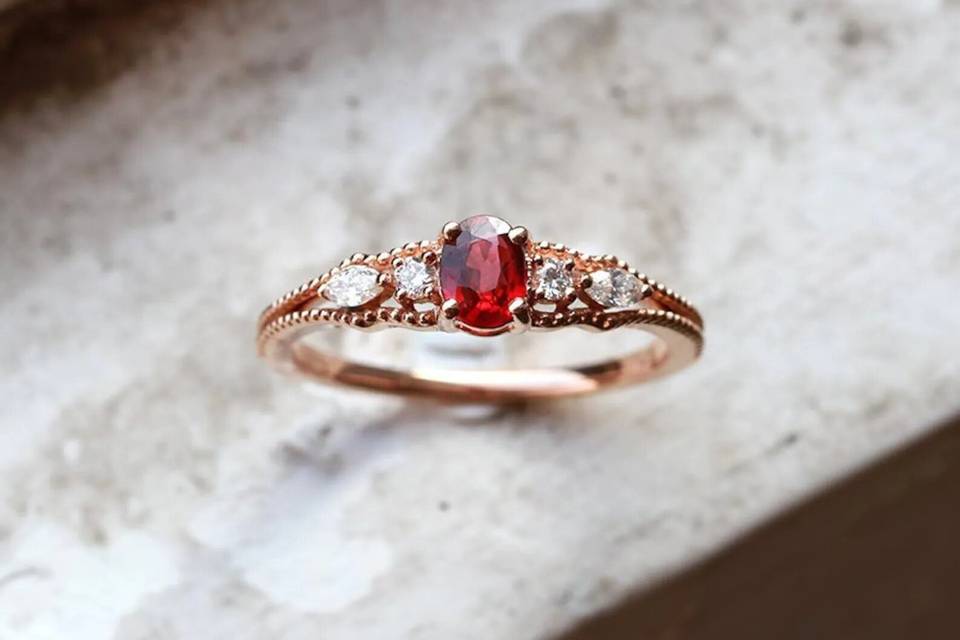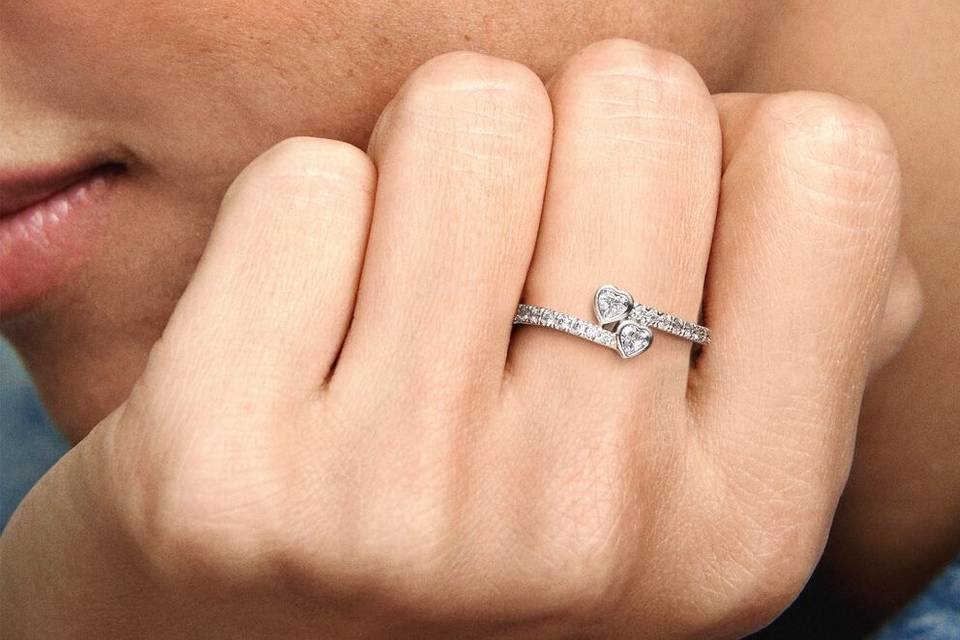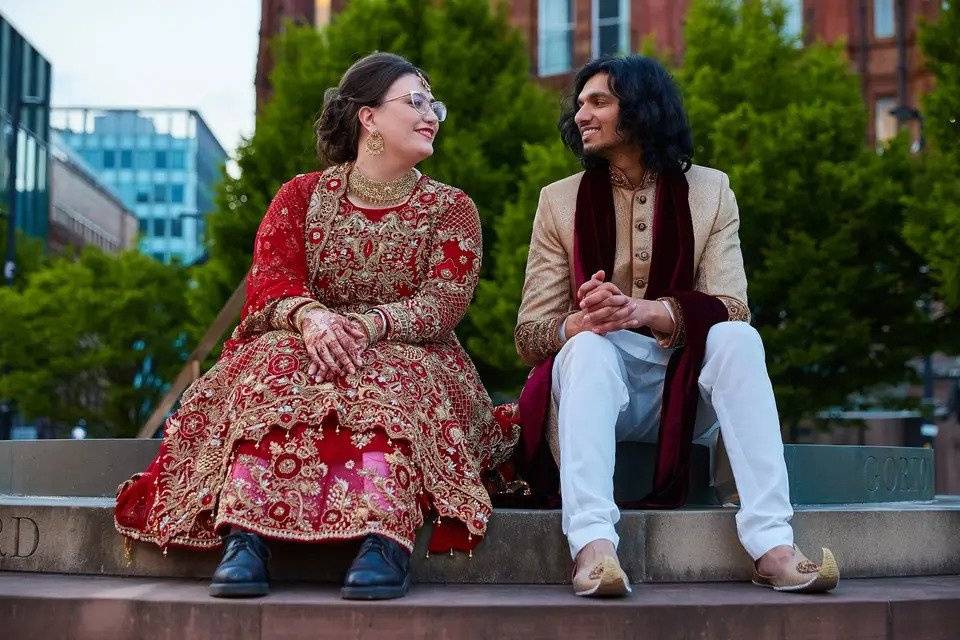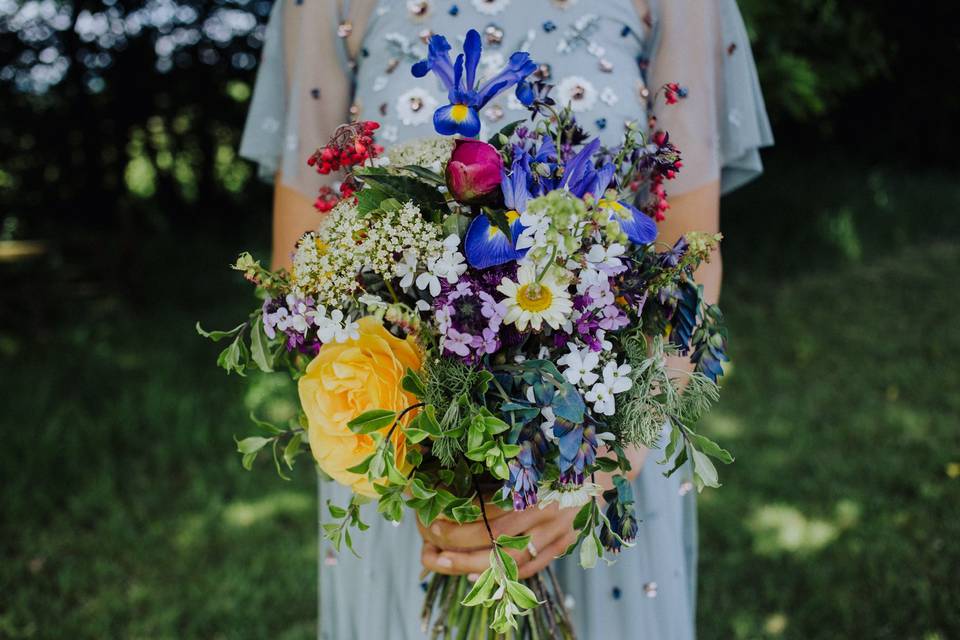What Does RSVP Mean?
Discover what RSVP stands for, why it’s used on invitations – plus expert-approved tips on when to send one and how to reply
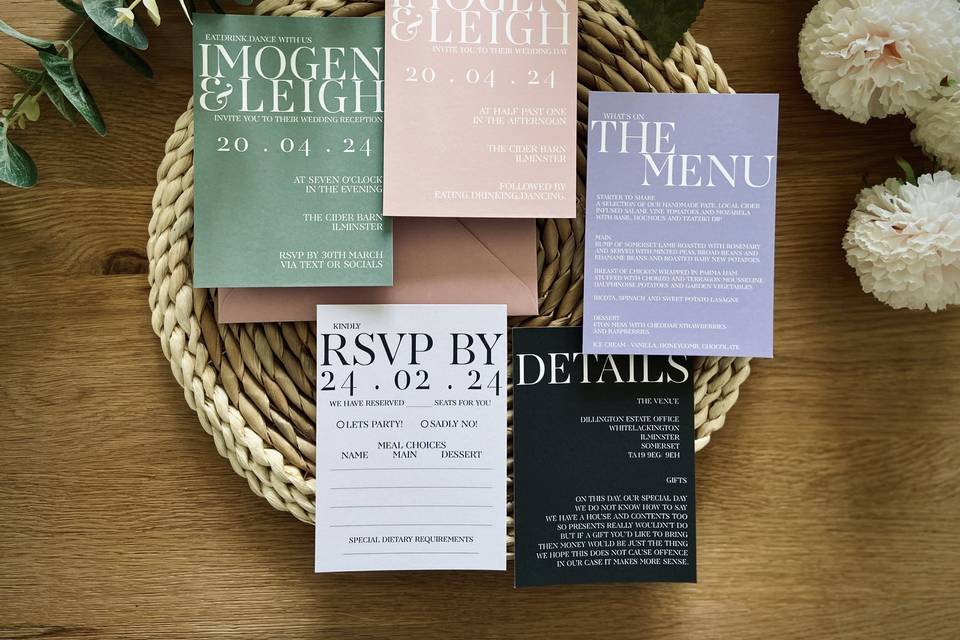

Is there anything that unites stressed-out nearlyweds quite like a late wedding RSVP? For such a discreet slip of paper, they sure do cause a lot of anguish. But other than being a fiddly bit of admin to chase up, what is an RSVP? Do you know what RSVP stands for? And do we really need to add them to our invites? (Yes, sorry).
“RSVPs are vital because they confirm exactly who is attending the wedding, so you can plan things like catering requirements and seating arrangements,” says Linzi Barford, wedding planner and founder of That Black & White Cat.
“The number of guests attending the wedding really does effect everything,” adds Kate Park, director at Kate Park Events. “From the number of chairs needed to napkins, favours, drinks and more.”
RSVPS Explained for Nearlyweds
The date’s all set, now you just have to invite everyone. But what is the meaning of RSVP, what is the best RSVP card wording, and what do you do if guests don’t RSVP on time? Ahead, we cover everything couples need to know.
What does RSVP mean?
Most of us have seen those four letters our whole lives – starting with the birthday party invites we’d receive back in school – but what does RSVP stand for?
RSVP stands for ‘répondez s’il vous plaît’ and was borrowed from the French by well-to-do Brits in the 1800s. Because, let’s face it, ‘reply now please’ just doesn’t quite have the same ring to it.
What is the meaning of RSVP in an invitation?
Aside from sounding fancy, RSVPs are a simple call to action for guests to let you know whether or not they’ll be attending your wedding. The RSVP within your invite should give clear instructions on how guests should respond and when they should respond by.
What can I say instead of RSVP?
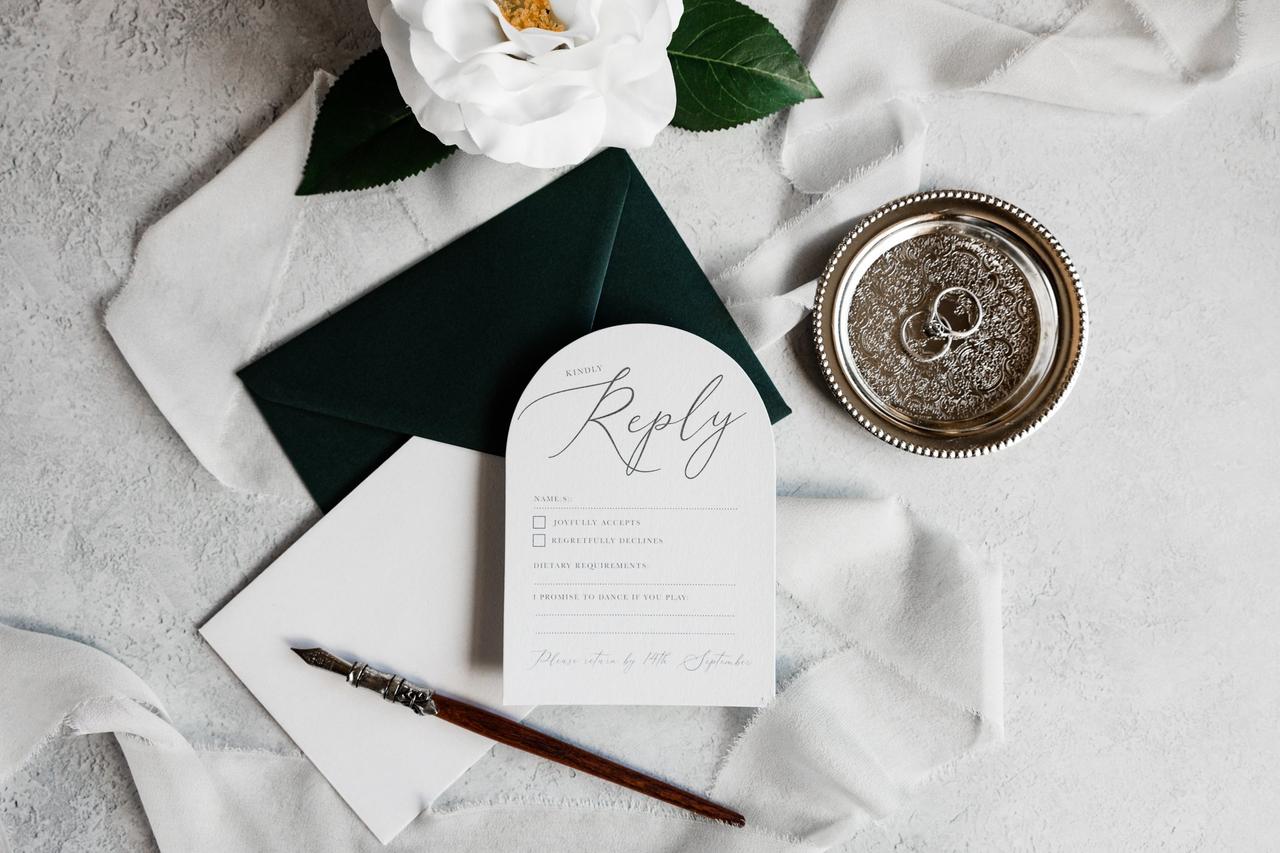
If you don’t want to include the trad French abbreviation, how do you ask guests to RSVP politely? Our suggestion would be something like: ‘please/kindly respond by…’
That said, a prominent RSVP request alongside a clear explanation of the best means to confirm or decline attendance is less likely to get lost in the small print of a wedding invitation.
What should a wedding RSVP card include?
“The most important thing is that there is an obvious and easy way for guests to respond, whether that’s a pre-stamped envelope, email address or QR code that takes your guests to your wedding website,” says Kate.
Also make sure you’re clear on what part of the wedding your recipient is invited to. Be sure to state on the invitation whether they’re invited to the whole day, or just the evening reception.
Do think about what other information you need to know ahead of time, too. This is a good opportunity to nail down your guests’ meal choices, whether or not they need a parking space at the venue or even get a few song suggestions for the DJ.
How far in advance do we need RSVPs back?
Wedding invitations are typically mailed out between 6-10 weeks before the wedding, but in a case where guests may have to make extensive travel or accommodation options, you could even aim for 12. Your date for guests to RSVP should be around 3-4 weeks before the wedding so you can get final numbers to your venue and caterers.
“This will also give you plenty of time to deal with any late responses before confirming guest numbers with your suppliers,” adds Linzi.
If you sent out a save the date, you’ll likely have already received some nos from those who definitely can’t attend before the invites even go out.
We recommend creating an A list and a B list of guests so when you start getting RSVPs back from your A-list (those you just can’t imagine not being there on the big day), you can start sending invites to the B list (those you’d love to have but may not have the space/budget for unless you get some nos). This is why it can be helpful to get those RSVPs in as early as possible!
How do you follow up with guests who haven’t RSVP’d?
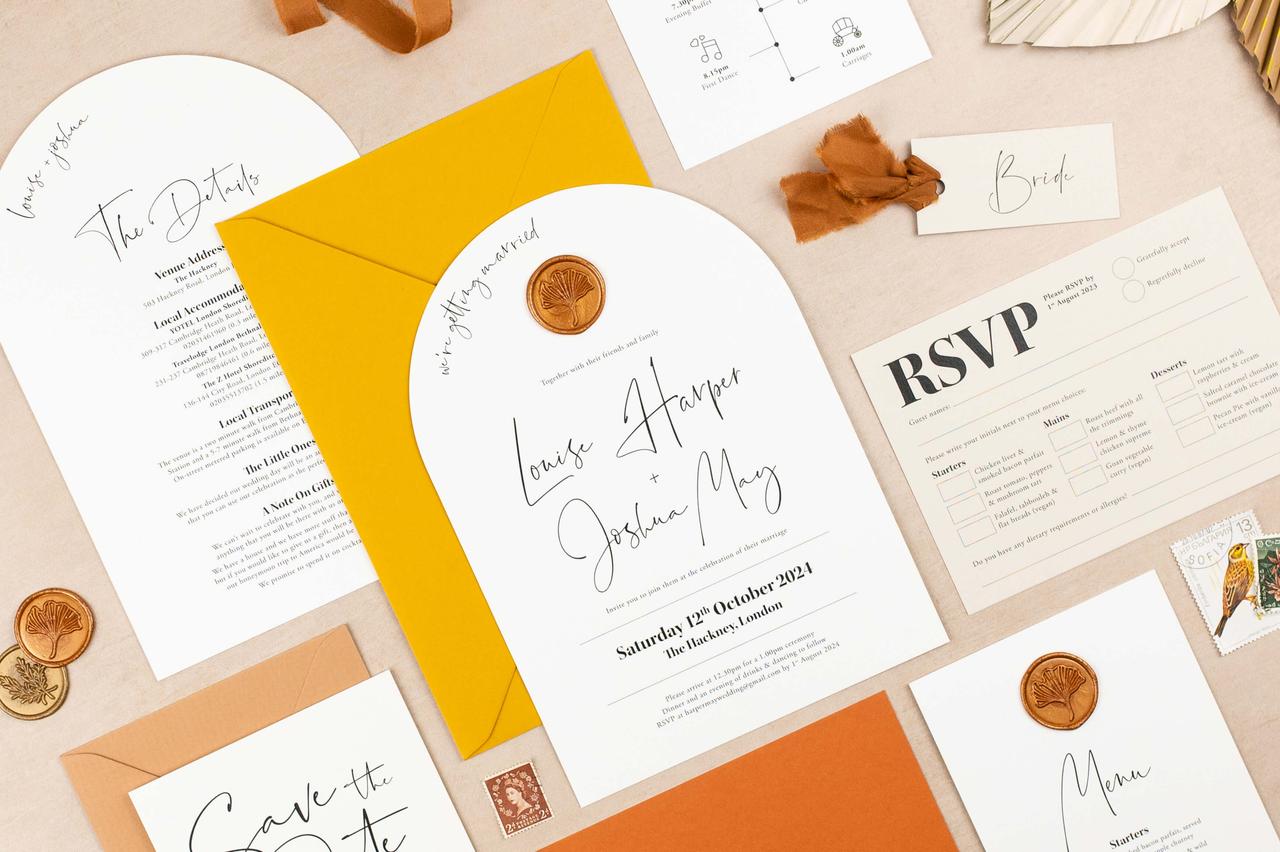
Many digital invitation tools allow you to gently nudge guests who are yet to reply – give it a week after the requested RSVP date before you follow up.
Still getting radio silence? “I’d suggest a gentle nudge first via a friend or family member,” advises Linzi. “If they still haven’t responded then you’ll need to contact them directly. Don’t shy away from asking them directly – you need to know.”
“It’s absolutely fine to send a text message stating that you need to let the caterers know final numbers, for example,” adds Kate. “Though sometimes a quick phone call can feel nicer than a message and will get you a quicker response.”
Keep the tone light, underline how excited you are to share your day with them and ask them to send their RSVP as soon as possible to ensure they can share every element of the event with you.
RSVPS Explained for Wedding Guests
From RSVP etiquette to how to deliver your RSVP response, and the definition of RSVP vs regrets only, here’s everything you need to know when it comes to letting the couple know whether or not you’ll be there.
How do you respond to an RSVP?
Reply exactly as the couple has requested. There might be an enclosed RSVP notecard with a tick-box, meal options, the option to list any dietary requirements and other essential info, in which case, you’ll need to fill in all the information required, stating exactly who will be attending.
Often, there will be a stamped-addressed envelope enclosed, which you can use to send off your RSVP. The couple have done all the hard work for you in this case – so pop it in the post box as soon as you can!
Elsewhere, some couples may opt to save on postage and paper by asking you to respond via email or their dedicated wedding website. This could give you more scope to write a personal message to the couple alongside your RSVP.
Whatever you do, don’t informally slide into the couple’s DMs with a casual yay or nay and leave it at that. They will have an RSVP system in place and will need to pass on the final headcount to their suppliers ahead of time to ensure every guest is catered for.
How to RSVP to an invitation: RSVP etiquette
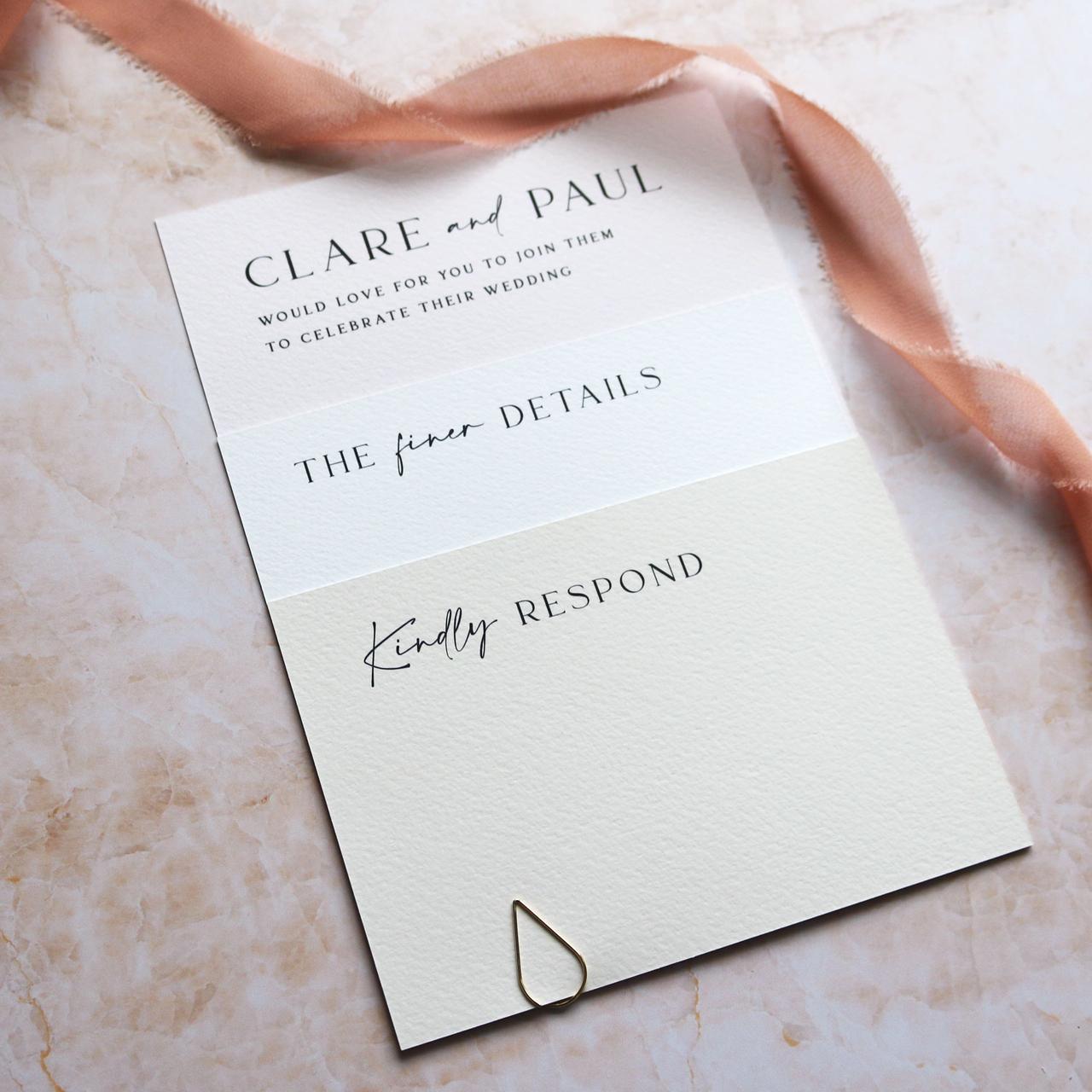
If you’re putting off replying to an RSVP because you don’t know what to write, look to the couple to see what kind of response is warranted.
If they’ve sent a card with a tick-box, you’re sorted and nothing else needs to be added unless you want to express excitement with a simple ‘can’t wait!’ or short explanation of why you sadly can’t be there.
If the couple hasn’t included an RSVP card, it’s up to you to pen a few words. You can buy RSVP cards – check Etsy, for example – to make it more of a thing (we guarantee the couple will appreciate it) then write something along the lines of: ‘We would be delighted to attend your wedding on XXX. We can’t wait to celebrate the day with you!’ If you’re looking for RSVP email wording, something like this would also work.
Tailor your message as appropriate for your relationship with the couple. If they’ve asked for information such as dietary needs, include this too.
Declining can feel a little trickier but is still nothing to fret about. Something straightforward such as, ‘Regrettably, we will be unable to attend but we can’t wait to hear all about it!’ will do nicely. If you want to give more detail as to why you can’t attend, that’s your call.
“The important thing here is to do this ASAP so the couple have time to invite someone else in your place,” adds Kate.
Whatever you do, don’t RSVP for guests or plus ones whose names aren’t included on your invitation. If in doubt, check with the couple who has made the cut to avoid any confusion or awkwardness. Hopefully the invitation makes it clear who the invite is for, particularly if it’s an adults-only wedding, for example.
When should I send my RSVP?
Ideally, you should send your RSVP as soon as you know whether or not you can attend. Filing a wedding invitation away in a drawer until the RSVP deadline is likely to mean you’ll forget to respond altogether – so tick the boxes as soon as you can.
If you’ve received a digital invite, there’s a good chance that whoever sent it has received a notification to alert them that it’s been received and opened. Don’t delay in letting them know if you’re planning on coming!
Can you RSVP maybe?
We wouldn’t recommend it. If you’re unsure whether you can make the wedding, let the couple know as soon as you do, and if in doubt, decline the invitation.
You can always get in touch nearer the wedding date if your circumstances change to ask whether there is still a seat available. Ducking out last minute, on the other hand, is just plain rude unless it’s on the account of unforeseen circumstances or an emergency.
If you RSVP yes, and your circumstances change, let the couple know as soon as possible so they can invite other guests or make amends to their seating plan.
What happens if you don’t RSVP?
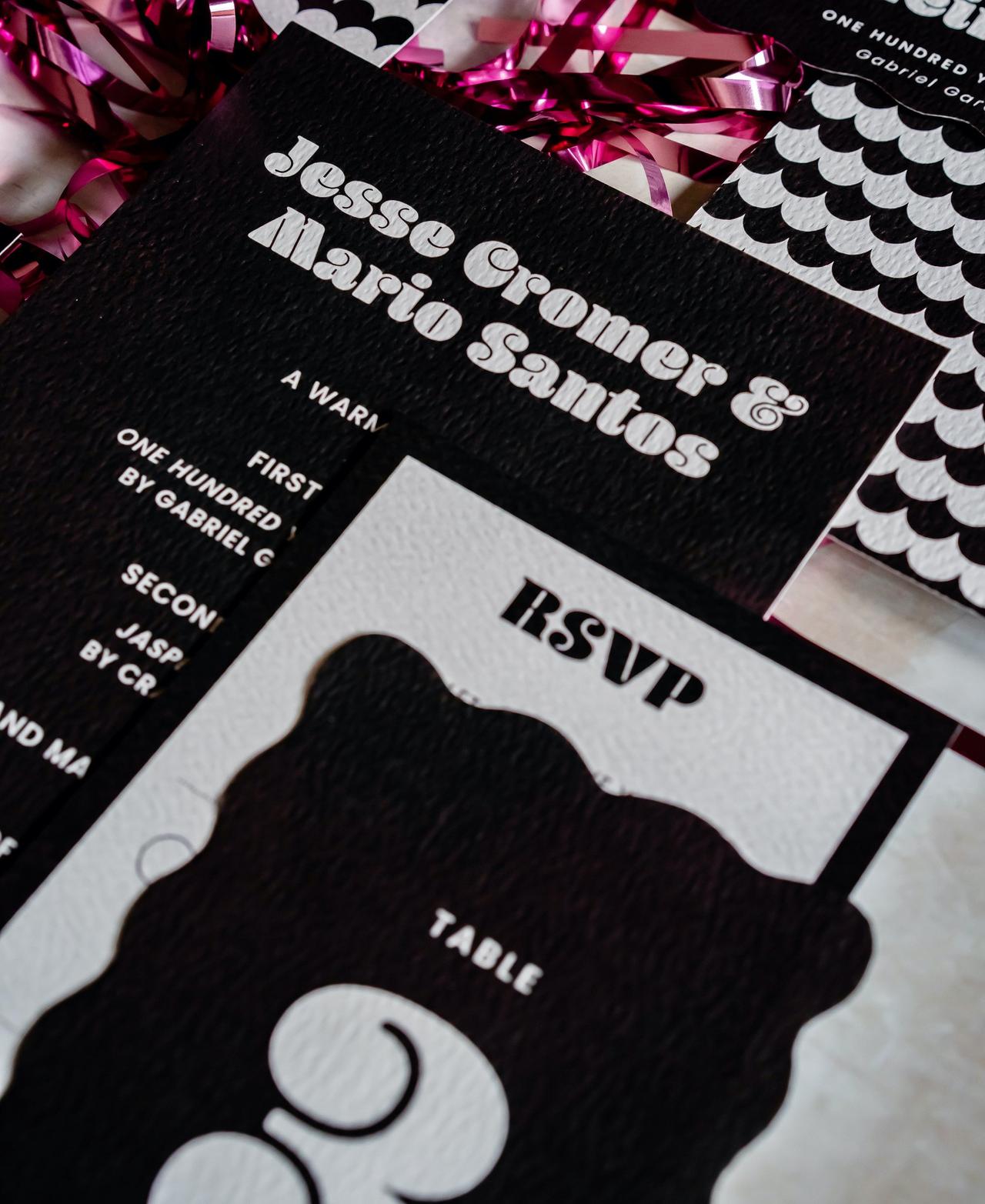
Not only is not responding to an RSVP rude, but it could result in your seat being allocated to someone else or – worse – a space, meal and wedding favour being saved for you unnecessarily.
An RSVP is essential for many wedding admin tasks, including table planning and ordering meals. If you can’t make it, the couple may be able to invite other people that they’re keen to spend their day with.
“Never assume the couple knows you’re coming,” adds Kate. “You wouldn’t want to arrive, and your name isn’t on the table plan!”
When should I not RSVP?
Save the dates don’t usually require an RSVP, however, if one drops onto your doormat and you know you won’t be able to attend, it’s worth letting the couple know that you can’t be there but that you wish them well and would love to celebrate with them another time. That way, they won’t waste sending an (expensive) invite your way.
It’s polite to ask them to send on details of a wedding gift registry regardless, so you can’t still get them a gift if you’d like to.
If you’ve happily marked the date in your calendar, wait for the formal wedding invitation to arrive before sending an official RSVP. That’s the thing about wedding planning – everything is perfectly timed, so your RSVP could end up getting lost!
What’s the difference between RSVP and regrets only?
Despite their significance today, RSVPs weren’t always a requirement. In the past, unless a guest responded to an RSVP with their regrets, any invitees were automatically expected to attend.
Today, the instruction to RSVP usually requires a concrete ‘yes’ or ‘no’, unless ‘Regrets Only’ is clearly stated on the invitation. If it does say this on your invitation, it means it will be assumed that you’re able to attend, and a reply is not necessary unless you can’t.
Now you’ve officially RSVP’d, the fun begins! Shop our list of the best wedding gifts for the happy couple.

